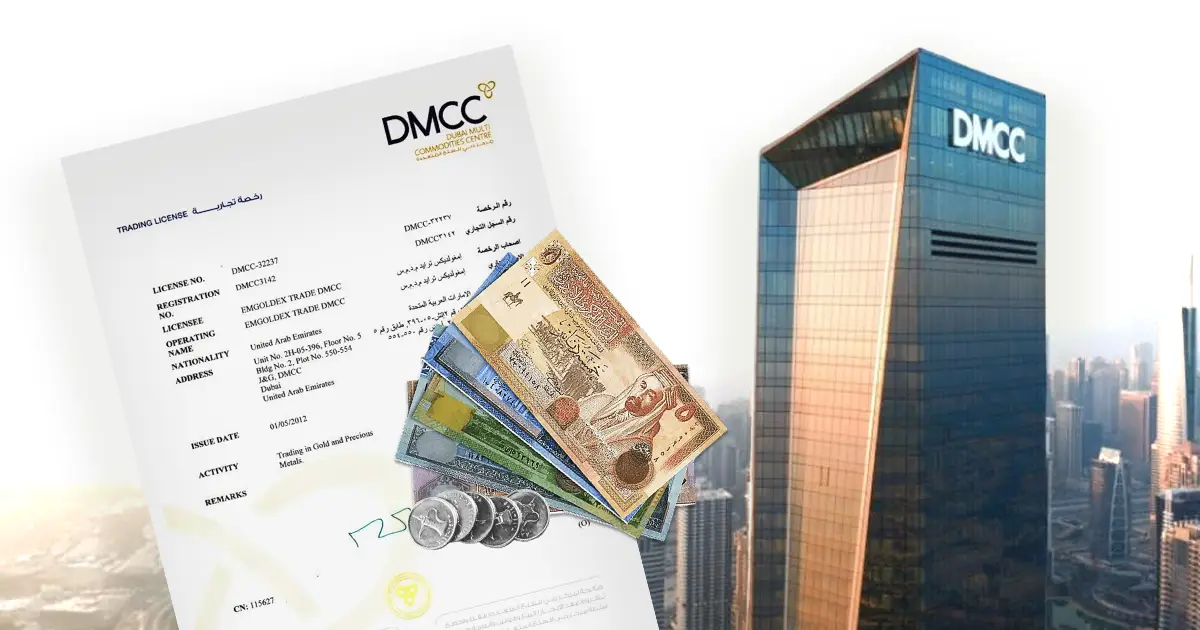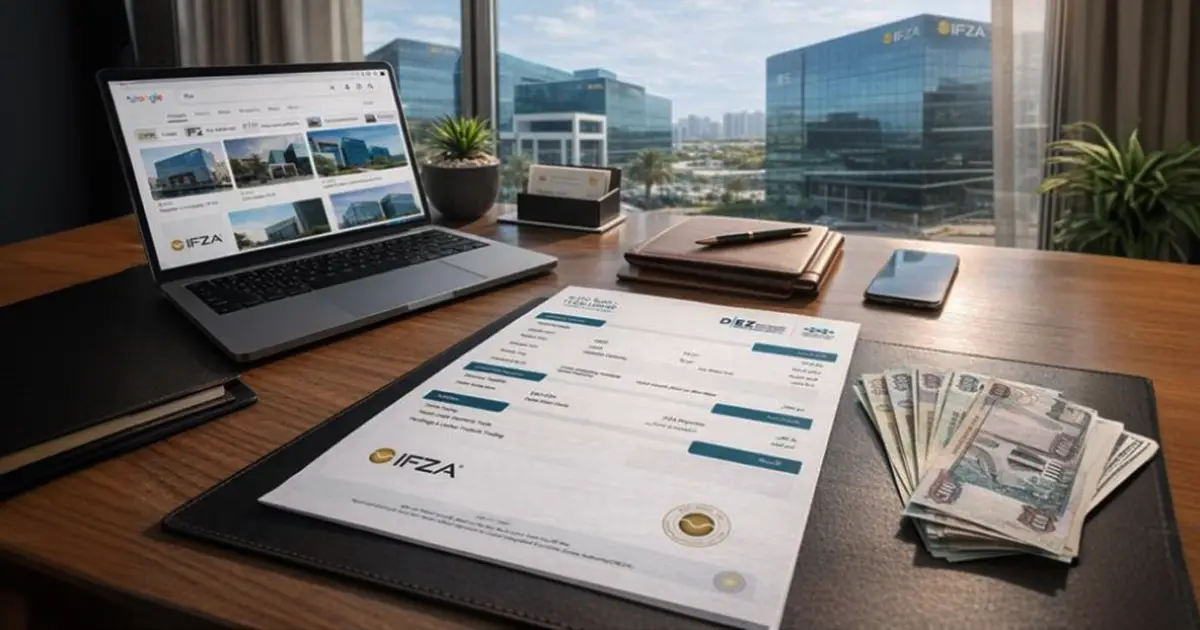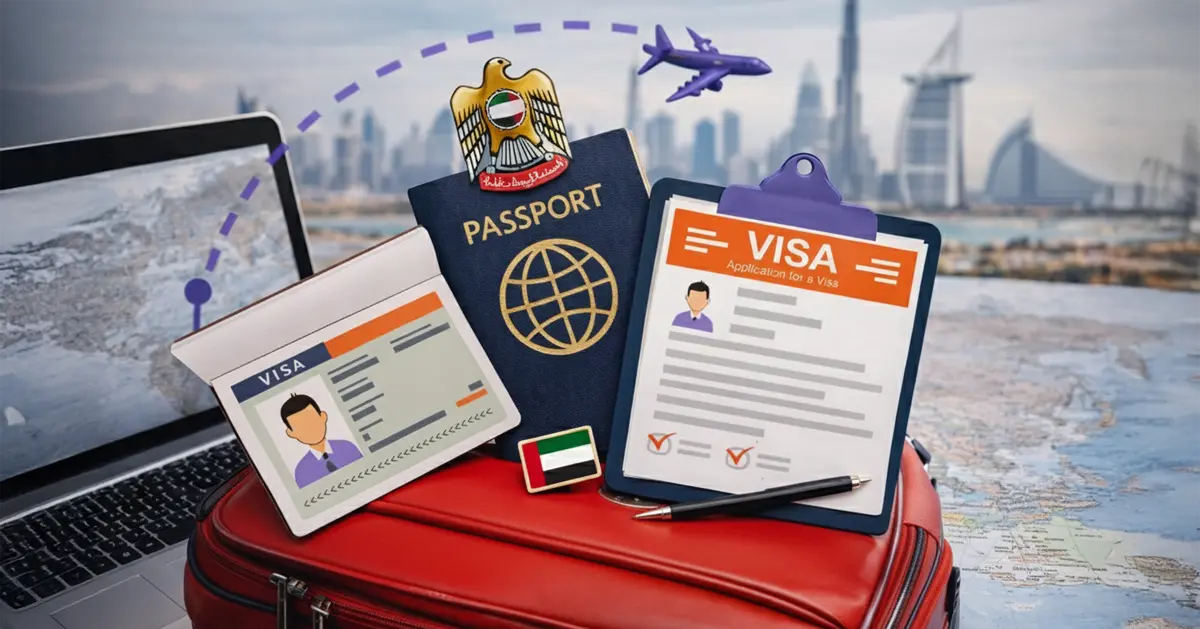Launching a fintech venture involves a series of strategic decisions and procedural steps. Following this structured approach can simplify the journey.
Step 1: Choose the Right Jurisdiction
The first critical decision is where to register the company in UAE. The choice of jurisdiction impacts regulation, ownership structure, and market access.
A mainland company, registered with the Department of Economy and Tourism (DET), allows direct trading within the broader UAE market. However, it requires approval from the UAE Central Bank, which can be a complex process.
This is the most popular option for fintech startups. Free zones offer 100% foreign ownership, tax exemptions, and specialized regulatory environments. For those wondering how to start a fintech company with international standards, free zones are often the answer.
Top free zones for fintech include:
- Dubai International Financial Centre (DIFC): The premier financial hub in the region. It operates under its own legal system based on English common law and is regulated by the DFSA. It offers a “FinTech License” for startups to test their innovations in a controlled environment.
- Dubai Silicon Oasis (DSO): A technology-focused free zone that supports tech startups with a great infrastructure and access to a rich talent pool.
- Dubai Multi Commodities Centre (DMCC): An excellent choice for companies involved in crypto and blockchain technologies, with a thriving crypto ecosystem.
Fintech startups must decide between free zone or mainland for company formation in Dubai, depending on ownership and market access requirements
Step 2: Select the Legal Structure
After choosing a jurisdiction, the next step is to select a legal structure. This determines liability, ownership, and operational rules.
- Free Zone Limited Liability Company (FZ-LLC): This is a common choice in free zones. It is a separate legal entity where the owner’s liability is limited to their investment in the company.
- Branch Office: An existing foreign company can set up a branch in Dubai. The parent company remains 100% liable for the branch’s operations.
- Sole Establishment: An option for a single individual owner, available in certain free zones for setting up a Sole Establishment.
Each structure has different share capital requirements and documentation needs. For instance, a DIFC-based company has specific capital requirements depending on the nature of its financial activity.
Step 3: Apply for Regulatory Approvals
Applying for the correct regulatory approvals is a critical step for any fintech company in Dubai. Without the appropriate license, a company cannot legally operate, and the required approvals depend on the business activity and jurisdiction.
How to apply and key licensing options:
- DFSA FinTech License (Innovation Testing License): Submit an online application via the DFSA portal with the business plan, product details, and KYC documents. This license, available in the DIFC, allows startups to test products for 6–12 months under a regulatory sandbox.
- Central Bank of the UAE Approvals: Businesses operating on the mainland must submit a formal application to the UAE Central Bank, including detailed financials, compliance policies, and operational plans. This ensures regulatory adherence for payments, lending, or stored-value services.
- VARA Licensing: For virtual asset businesses outside the DIFC, submit an application through VARA’s portal with required corporate, compliance, and KYC documentation.
Careful preparation of all documents and following the specific application procedures ensures a smooth approval process and legal compliance.
Step 4: Prepare and Submit Documentation
The application process requires a comprehensive set of documents. While the exact list varies, common requirements include:
- Passport copies of all shareholders and managers.
- A detailed business plan outlining the product, market analysis, financial projections, and operational strategy.
- Proof of residential address for each shareholder.
- Know Your Customer (KYC) and Anti-Money Laundering (AML) policy documents.
- Proof of initial capital contribution (if required).
A well-prepared and thorough application is key to a smooth approval process.
Step 5: Set Up Technology and Compliance Infrastructure
For a fintech company, technology is its backbone, and compliance is its license to operate.
- Cybersecurity: Protecting customer data is non-negotiable. The company must implement robust cybersecurity measures to comply with the UAE’s Personal Data Protection Law (PDPL) and other international standards like GDPR.
- Compliance Tools: Implementing strong KYC/AML software is essential to prevent financial crime. Regulators expect fintech firms to have automated systems for identity verification and transaction monitoring.
- Payment Gateways: Securely integrating with payment gateways and banking partners is necessary to process transactions.
Step 6: Secure Funding and Partnerships
Most startups need capital to grow. Dubai offers a rich ecosystem for fundraising, including:
- DIFC FinTech Hive: This leading accelerator provides access to funding, mentorship from financial institutions, and a collaborative workspace.
- Venture Capital (VC) Firms: Dubai is home to numerous VC firms that specialize in funding early-stage tech and fintech companies.
- Angel Networks: Groups of high-net-worth individuals actively invest in promising startups.
- Government Grants: Various government programs offer grants and incentives for innovative businesses that align with Dubai’s strategic goals.
Building partnerships with banks, financial institutions, and other tech companies can also provide credibility and accelerate market entry.
Step 7: Hire Talent and Manage Visas
A strong team is vital. Dubai’s visa system allows companies to hire global talent.
- Investor and Employee Visas: Once the company is licensed, it can apply for residency visas for its owners and employees. The number of visas depends on the size of the office space and the company’s package.
- Remote Work Options: Dubai has also introduced a virtual work residency visa, allowing professionals from around the world to live in Dubai while working remotely for companies abroad.
Step 8: Open a Bank Account
A functional corporate bank account is critical for fintech operations. Once the company is legally registered, it can apply to open a corporate account with a UAE bank.
Key points to consider:
- Banks typically require a company license, shareholder documents, and KYC compliance.
- Some banks offer fintech-specific accounts designed for payment processing and digital transactions.
- Maintaining a UAE-based account ensures smooth operations and builds credibility with clients and partners.
Step 8: Launch and Market Your Fintech Solution
With everything in place, it’s time to launch. Success in the competitive fintech market depends on a strong go-to-market strategy.
- Build Trust: Trust is the currency of finance. Be transparent about fees, security measures, and regulatory compliance. Displaying the license prominently builds confidence.
- Leverage Partnerships: Collaborate with established banks or telecom operators to reach a wider audience quickly.
- Digital Marketing: Use targeted digital marketing strategies to reach your ideal customers in the UAE and the wider region. Content marketing, social media engagement, and search engine optimization are powerful tools.
Launching a fintech business in Dubai provides access to a supportive regulatory ecosystem, global talent, and strategic market opportunities. Entrepreneurs can operate across the UAE, leverage partnerships with banks and financial institutions, and benefit from government-backed initiatives.
Those considering a mainland setup gain additional advantages, such as unrestricted trading across the UAE and eligibility for high-value contracts. For a detailed overview of these benefits, read this blog on the benefits of mainland company formation in Dubai.





